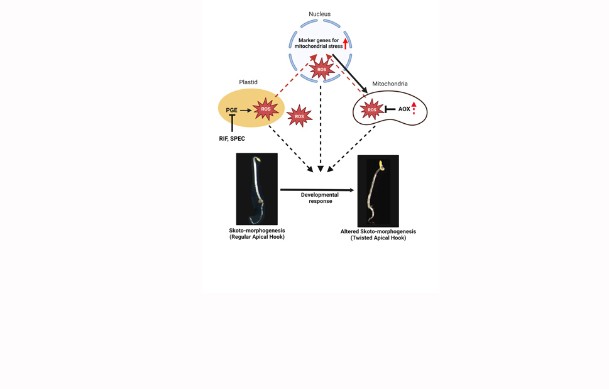Etioplast dysfunction reprograms morphogenesis
Limiting etioplast gene expression induces apical hook twisting during skoto-morphogenesis of Arabidopsis seedlings
When seeds are covered by soil, seedlings follow a dark-specific developmental program (skoto-morphogenesis) that is characterized by small and non-green cotyledons, a long hypocotyl and an apical hook to protect meristematic cells during seedling emergence. Previously, we highlighted the role played by mitochondrial respiratory pathways, and in particular by the mitochondrial alternative oxidases (AOX), in the high energy-consuming reprogramming of Arabidopsis skoto-morphogenesis. AOX enzymes act to prevent over-reduction of the mitochondrial electron transport chain. The teams MetaboActions and OGE of IPS2 published a collaborative study in The Plant Journal describing that, in addition to mitochondria, plastids, the other energy supplying organelles in the cell, also influence the level of apical hook bending during skoto-morphogenesis. Genetic- or antibiotics-induced inhibition of plastid gene expression (PGE) induced nuclear gene markers for mitochondrial stress as well as increased oxygen consumption by AOX. We suggest that the mitochondrial AOX1A enzyme is involved in the developmental response to PGE dysfunction, and propose that signaling between plastids and mitochondria is associated to early seedling development in darkness.

09/03/2022
